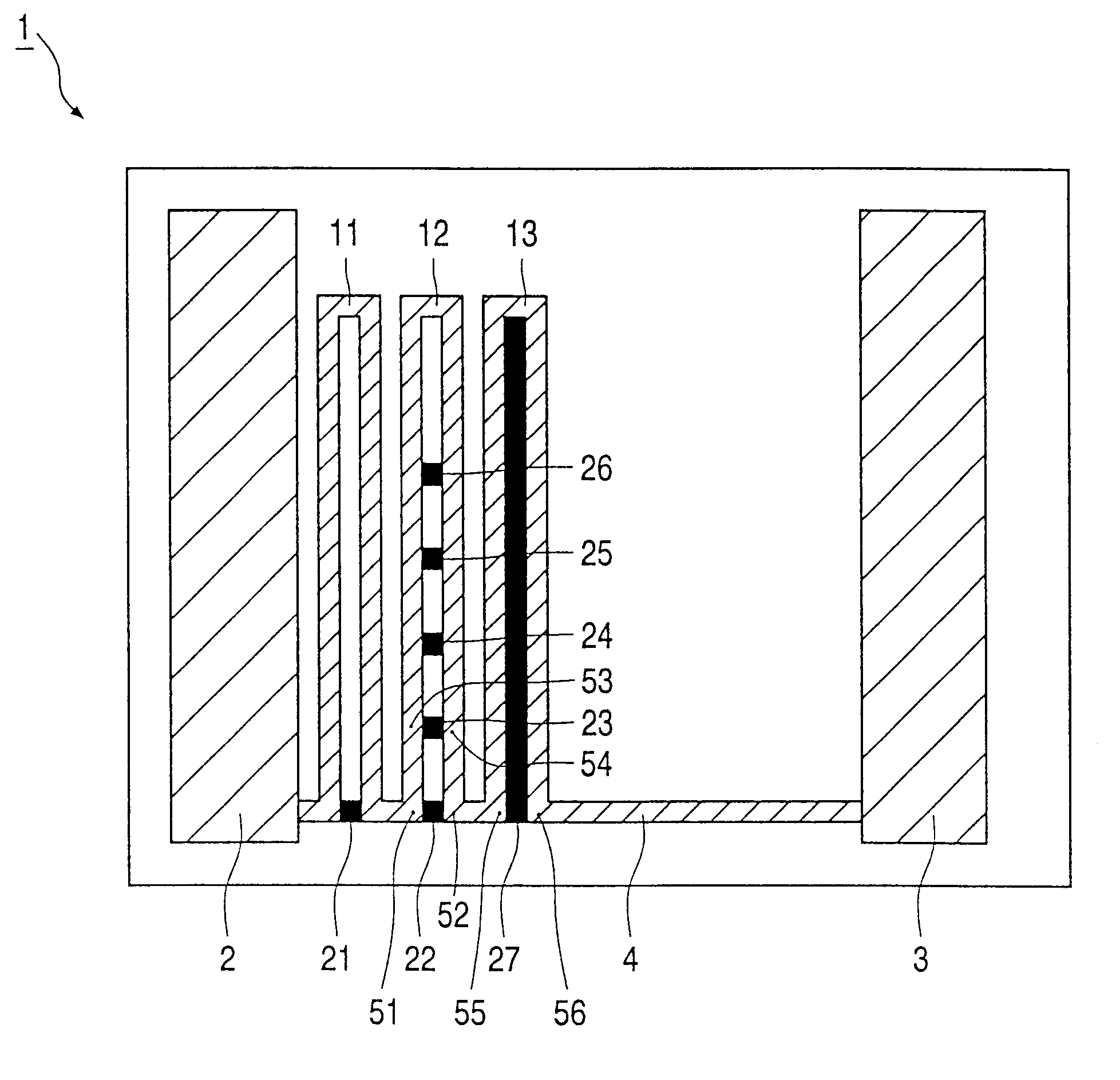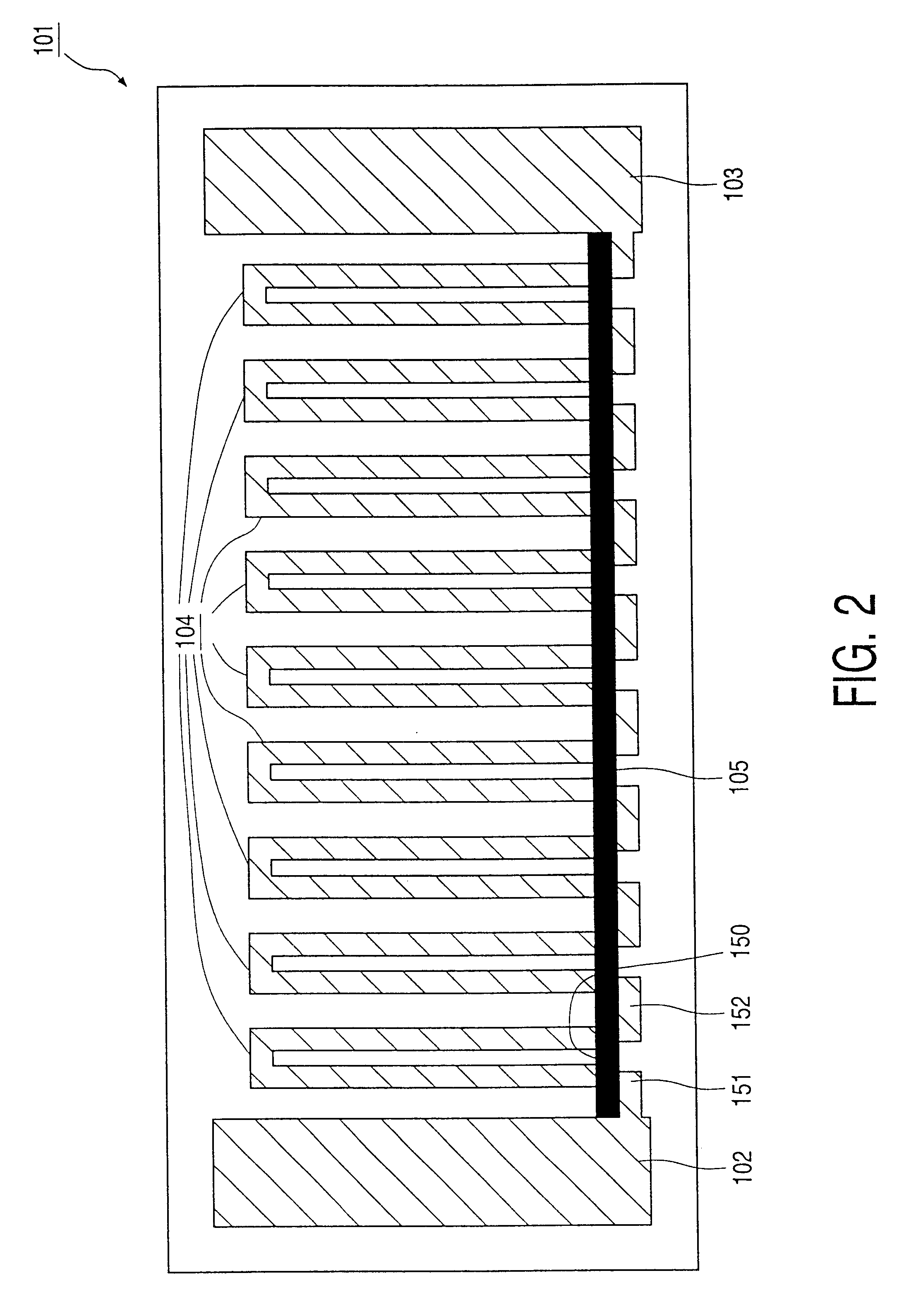Passive component
a passive component and component technology, applied in the direction of stacked capacitors, fixed capacitor details, thin/thick film capacitors, etc., can solve the problems of component useless without this possibility, component value cannot be substantially continuously adjusted over a range, risk of circuit component destruction
- Summary
- Abstract
- Description
- Claims
- Application Information
AI Technical Summary
Benefits of technology
Problems solved by technology
Method used
Image
Examples
Embodiment Construction
TABLE 2
FIG. 1 is a diagrammatic plan view of the resistor 1. This resistor 1 comprises contacts 2 and 3 of Al, a resistance track 4 of the resistance material W--Ti--N, and Al--Ge tracks 21, 22, 23, 24, 25, 26, 27. The resistor is manufactured as follows: 50 nm Al.sub.60 Ge.sub.40 and 20 nm W.sub.70 Ti.sub.10 N.sub.20 are provided in that order on an Al.sub.2 O.sub.3 substrate by means of sputter deposition. The W--Ti--N is patterned, a positive photoresist being used as the etching mask. The uncovered W--Ti--N is etched in a buffered hydrogen peroxide etchant. The result is a pattern of W--Ti--N which forms a meandering resistance track 4 comprising three loops 11, 12, 13. Then the Al.sub.60 Ge40 is patterned. A positive photoresist is again used as the etching mask. The Al.sub.60 Ge.sub.40 is selectively removed in the regions between the loops 11, 12, and 13 of the meandering resistance track 4. The first loop 11 comprises a first bridge 21. The second loop 12 comprises five trac...
PUM
 Login to View More
Login to View More Abstract
Description
Claims
Application Information
 Login to View More
Login to View More - R&D
- Intellectual Property
- Life Sciences
- Materials
- Tech Scout
- Unparalleled Data Quality
- Higher Quality Content
- 60% Fewer Hallucinations
Browse by: Latest US Patents, China's latest patents, Technical Efficacy Thesaurus, Application Domain, Technology Topic, Popular Technical Reports.
© 2025 PatSnap. All rights reserved.Legal|Privacy policy|Modern Slavery Act Transparency Statement|Sitemap|About US| Contact US: help@patsnap.com



